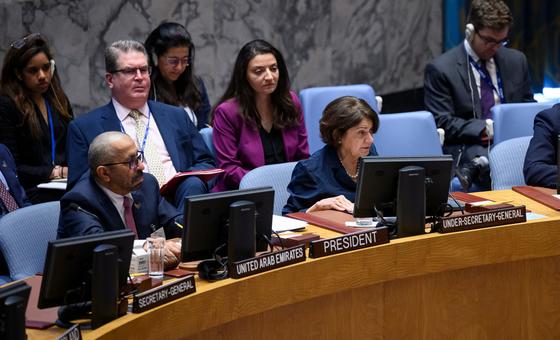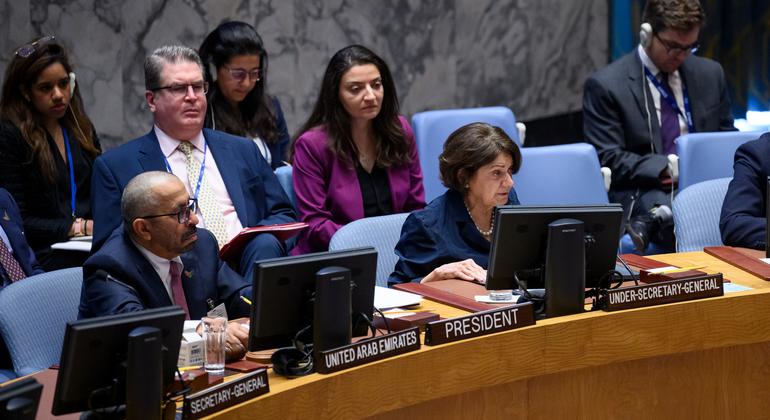
“Together we can achieve what neither organization can achieve on its own,” she said, presenting the UN Secretary-General’s latest report on the important collaboration.
Recent strains on multilateralism have seen trust in institutions and processes sorely tested, most recently by the uneven response to the COVID-19 crisis, she said.
“Defiance of international law and the norms that bind us is making international and regional cooperation to maintain peace and security ever more difficult,” she said. “In such a fraught context, it is heartening that the relationship between the UN and the League remains robust.”
Sudan: ‘This is not enough’
Highlighting recent developments in the region, she raised issues of common concern, including the continuing crisis in Sudan, where the national army and a powerful rival paramilitary group continue to battle each other in streets.
It is critical that the parties in Sudan remain committed to the ceasefire agreement brokered in May in Saudi Arabia – since stalled – but “this is not enough”, she said, adding that a longer-term plan for peace must unfold.
“The role of the region will be key to end the conflict,” she said.
Common goal: Two-State solution
Turning to the situation in Israel and Palestine, she said tensions continue to simmer and boil over in the occupied West Bank, and such unilateral actions as Israeli settlement expansion continue to undermine collective efforts to realize a two-State solution.
In addition, the lack of progress in holding Palestinian elections across the West Bank, Gaza and other occupied territories, must be addressed, she said, emphasizing the critical role the UN relief agency for Palestine refugees (UNWRA) plays in stabilizing the region.
“We share a common goal with the League of Arab States: a two-State solution,” she said. “This is the only path to sustainable peace between the two peoples.”
Finding political solutions
Welcoming progress in Libya, she commended the League’s expression of support for UN efforts to find a political solution. Ahead of planned elections, she said Libyans want to elect their leaders and end the cycle of endless political transitions.
Taking note of recent regional meetings on the 12-year-old conflict in Syria, she said that if this renewed momentum translates into action, a negotiated political solution to the conflict can be found. In this vein, she called on parties to support such efforts as addressing the matter of missing persons.
“We will continue to work with all, but we cannot do this alone,” she said, noting that regional support is essential.
‘Immense potential’
More broadly, she said the region possesses immense potential, including that 60 per cent of its population is under age 30. As such, the UN supports a range of efforts, include a joint initiative reaching out to Arab youth, she said.
Encouraging the League’s members to take action in line with relevant Security Council resolutions, including those related to youth and women, she said the UN continues to work with partners ahead of the 2024 review of the peace, security, and development nexus and the Organization’s partnership with the League of Arab States.
For more details on this and other meetings occurring throughout the UN system on a daily basis, visit our dedicated UN Meetings Coverage page.



